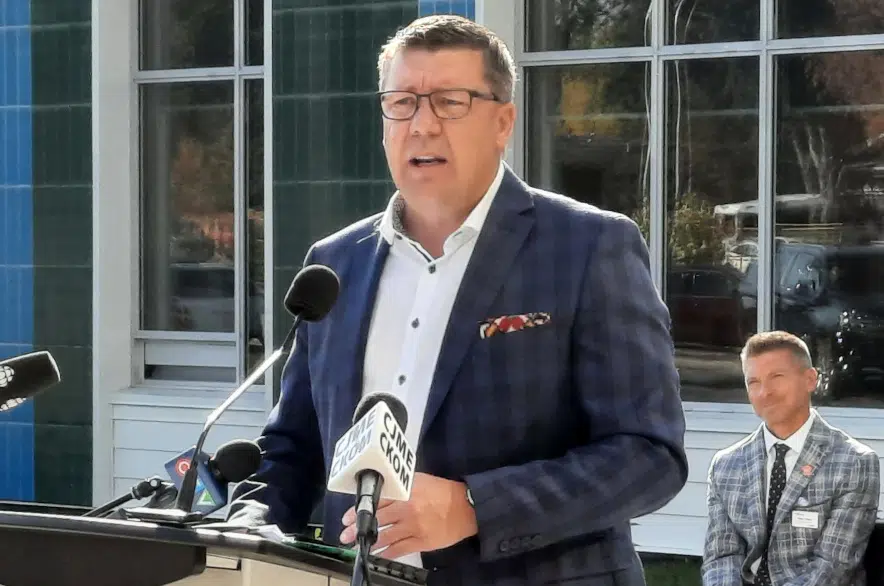While Premier Scott Moe has frequently agreed to speak with media about the controversial new school policies, including the pronoun policy, he’s recently been avoiding answering the questions posed.
On Sept. 15, the Saskatchewan Children’s Advocate, Lisa Broda, released a report that said the policy is discriminatory and violates children’s rights.
“The Advocate for Children and Youth concludes that the implied refusal to use the preferred first name and pronouns of a student under age 16 in the absence of parental/guardian consent, without a determination of the student’s capacity to consent for themselves, is a violation of their rights to gender identity and expression, contrary to law and/or is improperly discriminatory. Provincial reliance on a broad commitment to ‘parental rights’ on its own, does not override the rights of the child,” read the report.
Since then, Moe has been asked about the report several times – including several times on Monday whether he’s OK with implementing a policy and, eventually, law which has been deemed discriminatory by an expert, and whether that fact should give him pause.
But Moe has avoided answering those questions, and instead has been responding with the same handful of points about the policy that he and his ministers have been using since the policy was introduced.
“We would take this opportunity to encourage parents to reach out to their school division, to their teacher, their principal – that is how we ultimately will bring our parents closer to our school’s education system,” said Moe.
On Monday, Moe said his government hasn’t wavered on this policy, and repeated that it will use whatever tools necessary to make sure it is implemented.
He also talks about this being an inclusive policy to include parents in their children’s education, that there will be supports available for students, that the default position shouldn’t be to exclude parents, and that the changes will make the education system more responsive.
Moe said his government is looking at the advocate’s report closely and he points to the part where the advocate agrees that parental involvement is important in a child’s education and life. He said the government is particularly interested in the advocate’s thoughts around supports in the schools, and Moe agrees there should be supports for children going through any problems.
“As we find our way through this conversation and the school divisions find their way through the implementation plans, we most certainly are always committed to supporting, not only the students, but supporting the families around those students,” said Moe.
The premier also often points to a poll that was done before his government announced the policy, saying the majority of the province supports the pronoun policy. When it was pointed out that the majority of the province aren’t experts on children’s rights, Moe responded that most of the province are parents.
Exception for professionals
In New Brunswick, the provincial government has previously clarified that an exception will be made for professionals like a school psychologist or social worker to use a child’s chosen name or pronoun without parental consent.
However, it appears that change won’t be made in Saskatchewan. Moe said the only way the school will recognize a name and pronoun change will be with the parent’s involvement.











